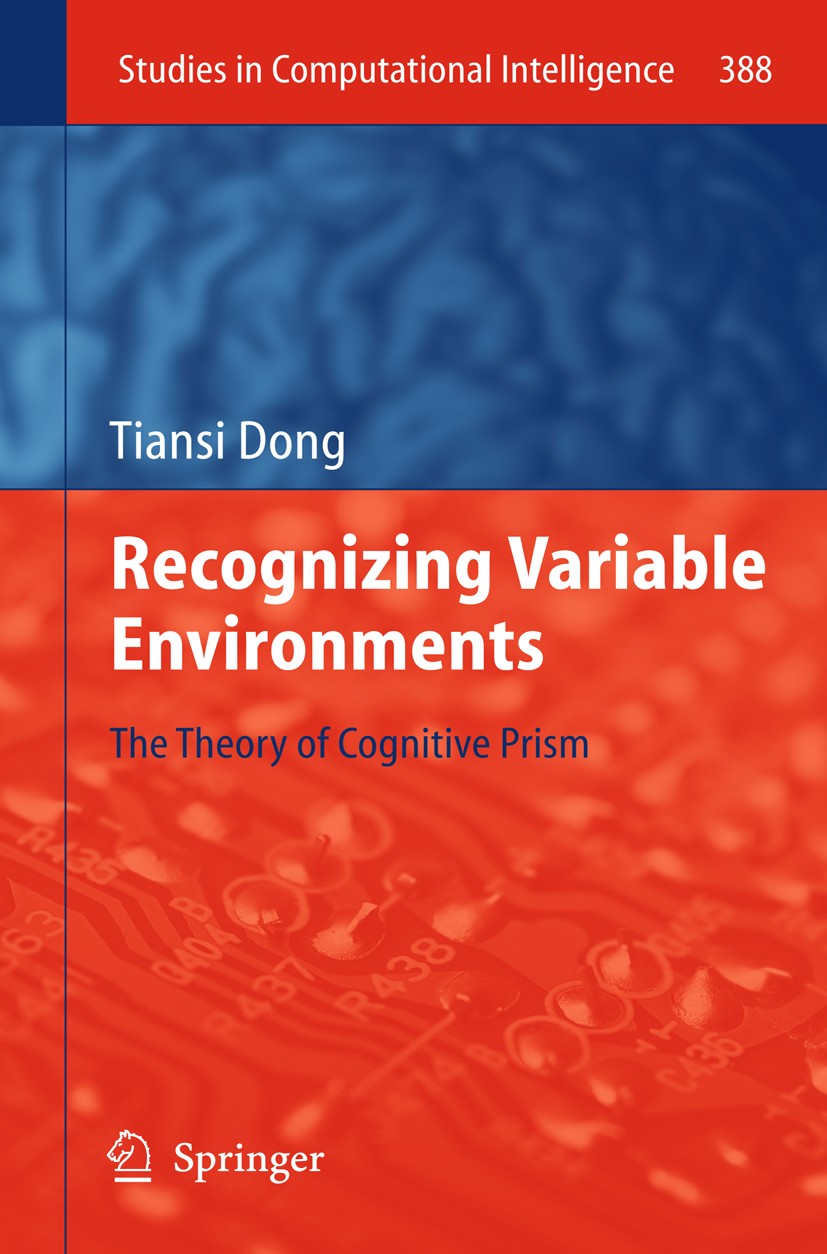| 书目名称 | Recognizing Variable Environments |
| 副标题 | The Theory of Cognit |
| 编辑 | Tiansi Dong |
| 视频video | http://file.papertrans.cn/825/824077/824077.mp4 |
| 概述 | Introduction of a new computational theory for Recognizing Variable Environments.Description of the Theory of Cognitive Prism.Written by a leading expert in the field |
| 丛书名称 | Studies in Computational Intelligence |
| 图书封面 |  |
| 描述 | .Normal adults do not have any difficulty in recognizing their homes. But can artificial systems do in the same way as humans? This book collects interdisciplinary evidences and presents an answer from the perspective of computing, namely, the theory of cognitive prism. To recognize an environment, an intelligent system only needs to classify objects, structures them based on the connection relation (not through measuring!), subjectively orders the objects, and compares with the target environment, whose knowledge is similarly structured. The intelligent system works, therefore, like a prism: when a beam of light (a scene) reaches (is perceived) to an optical prism (by an intelligent system), some light (objects) is reflected (are neglected), those passed through (the recognized objects) are distorted (are ordered differently). So comes the term ‘cognitive prism‘! Two fundamental propositions used in the theory can be informally stated as follow: an orientation relation is a kind of distance comparison relation -- you being in front of me means you being nearer to my face than to my other sides; a pair of objects being connected means any object, precisely the space occupied by the |
| 出版日期 | Book 2012 |
| 关键词 | Cognitive prism; Cognitive system; Cognitive system; Computation Intelligence; Connectedness relation; Di |
| 版次 | 1 |
| doi | https://doi.org/10.1007/978-3-642-24058-4 |
| isbn_softcover | 978-3-642-27121-2 |
| isbn_ebook | 978-3-642-24058-4Series ISSN 1860-949X Series E-ISSN 1860-9503 |
| issn_series | 1860-949X |
| copyright | Springer-Verlag GmbH Berlin Heidelberg 2012 |
 |Archiver|手机版|小黑屋|
派博传思国际
( 京公网安备110108008328)
GMT+8, 2026-2-9 21:40
|Archiver|手机版|小黑屋|
派博传思国际
( 京公网安备110108008328)
GMT+8, 2026-2-9 21:40


